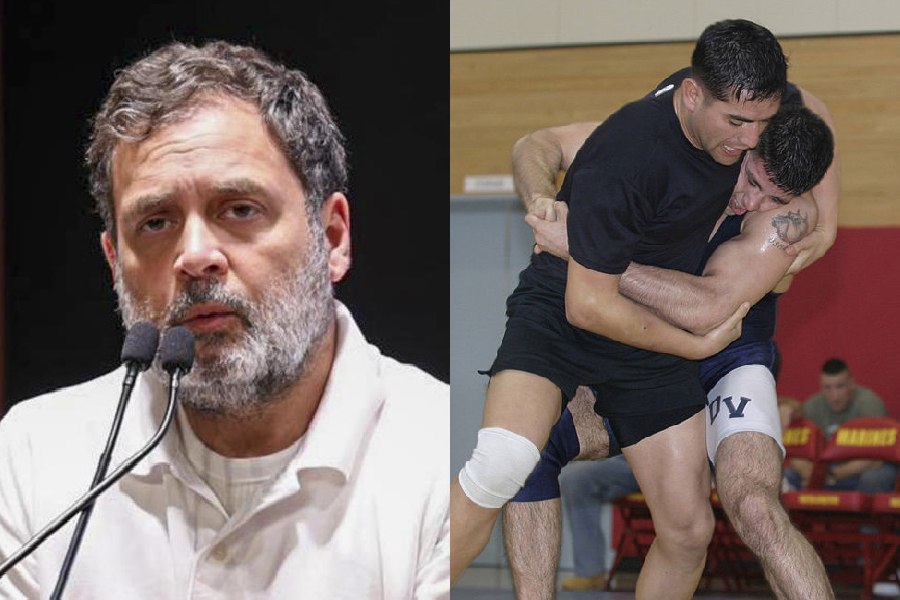 Sunday, 22 February 2026
Sunday, 22 February 2026
 Sunday, 22 February 2026
Sunday, 22 February 2026
Representation isn’t just about checking boxes — it's about creating space for characters to live, love, mess up, and thrive in all their complexity. This Pride Month, we celebrate eight unforgettable LGBTQ+ characters who challenged the stereotypical representation of queer people on screen.
Eric Effiong from Sex Education
Flamboyant, funny, and full of heart, Eric Effiong (Ncuti Gatwa) is not your stereotypical best friend. His journey from being Otis’s sidekick to becoming an anchor of the show is one of the most compelling arcs in modern television. Eric’s gay identity is at odds with his Christian, Ghanaian-Nigerian heritage, and how he deals with the conflict forms a beautiful character arc. Even his tender romance with Adam is one of the compelling subplots of the Netflix YA series.
Rosa Diaz from Brooklyn Nine-Nine
Stephanie Beatriz’s Rosa made headlines when she came out as bisexual in Season 5, becoming one of the rare bisexual Latinx characters on network television. Rosa’s no-nonsense, leather-jacket-clad cool character is legendary, and her coming-out arc is portrayed with sensitivity on screen. Her fear of her parents’ rejection, her reluctance to explain herself, and the eventual quiet confidence she exudes are all deeply relatable and honest.
Rue Bennett from Euphoria
Addiction, trauma, love, and queerness collide in Rue Bennett’s chaotic world. Played by Zendaya, Rue is a lesbian teen whose relationship with Jules (Hunter Schafer) serves as both her lifeline and her undoing. She’s unreliable, self-destructive, and achingly sincere. In Euphoria, queerness is not only an identity but also a lens through which love, vulnerability, and recovery are refracted. Zendaya’s Emmy-winning turn gives us a queer anti-heroine who is flawed, real, and unforgettable.
Todd Chavez from BoJack Horseman
Todd Chavez (Aaron Paul) from BoJack Horseman stands out as one of the first openly asexual characters on screen. Initially portrayed as a quirky, affable slacker, Todd’s journey toward understanding his identity unfolds gradually. In Season 3, he comes out as asexual after years of confusion about relationships and intimacy. The show treats his asexuality with nuance and respect, allowing Todd to explore what love, connection, and fulfillment mean outside conventional romantic frameworks.
Nick from Heartstopper
Nick Nelson from Heartstopper is the boyfriend we all wish we had. He is kind, sporty, soft-hearted — and proudly bisexual. What makes Nick’s coming-out arc so powerful is its gentleness. Played by Kit Connor, Nick isn’t boxed into stereotypes or forced into trauma tropes. Instead, we see a teenager slowly understanding himself, navigating feelings for Charlie while still being confused about labels. That iconic “I’m bi, actually” scene? Game-changing. Nick’s journey gives space for bisexual teens to feel seen
David Rose from Schitt’s Creek
David Rose (Dan Levy) from Schitt’s Creek didn’t just serve designer looks and deadpan sass, he was a groundbreaking pansexual representation on television. And David comes out in the most David way possible — through a wine metaphor. “I like the wine, not the label,” he quips, casually redefining how we talk about attraction. His romance with Patrick is one of TV’s most tear-jerking love stories.
Darryl Whitefeather from Crazy Ex-Girlfriend
Darryl Whitefeather (Pete Gardner) from Crazy Ex-Girlfriend is the lovable, slightly awkward boss who gave us one of TV’s most joyful bisexual coming-out arcs. Middle-aged, divorced, and discovering his identity late in life, Darryl’s Gettin’ Bi musical number is a cheeky anthem that reclaims bisexual visibility with flair.
Isaac Henderson from Heartstopper
Isaac Henderson, played by Tobie Donovan, may be the quietest in the Heartstopper gang, but his journey speaks volumes. A book-loving introvert often seen with his nose buried in a novel, Isaac’s story takes a turn in Season 2 when he begins to question his place in the world of love and attraction. While his friends explore crushes and kisses, Isaac’s path unfolds differently, culminating in his realisation that he’s asexual. It’s a rare and meaningful representation that doesn’t sensationalise but normalises his identity.







